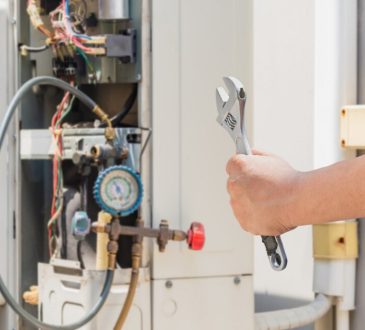
In commercial spaces, HVAC systems are not just about temperature control—they play a crucial role in ensuring indoor air quality, proper ventilation, and regulatory compliance. If you’re managing a facility, scheduling routine inspections for commercial HVAC service in Port Charlotte is essential not just for performance but also for meeting health and safety codes.
Government and industry regulations often require specific air quality standards, humidity control levels, and system functionality to reduce the risk of airborne contaminants. Businesses that overlook HVAC maintenance can easily fall out of compliance and face penalties or shutdowns.
The Role of HVAC in Indoor Air Regulation
Health codes related to HVAC systems typically focus on filtration efficiency, humidity levels, air turnover, and contaminant removal. Poor ventilation or malfunctioning systems can lead to the spread of bacteria, mold, and other harmful pollutants, posing serious health risks in commercial settings like restaurants, clinics, warehouses, and office buildings.
To stay compliant, businesses need properly functioning HVAC systems that meet local, state, and federal guidelines for commercial air quality. This includes regularly replacing filters, monitoring humidity, and ensuring sufficient ventilation.
The Importance of Professional Oversight
One of the most effective ways to maintain health code compliance is by working with experienced professionals who understand the nuances of commercial HVAC systems. Knowing how to select the right commercial HVAC contractor becomes critical at this point. A skilled contractor doesn’t just perform repairs—they assess the system’s compliance status, recommend upgrades if needed, and ensure that everything from ductwork to sensors is functioning correctly.
Regular inspections by qualified technicians allow for early detection of problems and keep documentation up to date—often a requirement during health inspections or audits.
Preventative Maintenance and Risk Reduction
Proactive service helps businesses avoid sudden breakdowns, employee complaints, or citations for unsafe air conditions. Issues like mold growth in vents or uneven airflow can go unnoticed until they affect health or trigger inspection failures.
It’s worth noting that many common commercial HVAC issues and how regular service can prevent them are directly tied to health code compliance. Problems such as dirty coils, failing thermostats, or clogged filters can escalate into larger concerns that impact air quality and violate code standards. Routine service helps ensure all components are clean, calibrated, and functioning as intended.
Meeting Industry-Specific Requirements
Different industries have varying HVAC expectations. For example, food service businesses may be required to maintain strict humidity and odor control, while medical clinics must prioritize air sterilization. A tailored commercial HVAC strategy ensures the system meets both the general and industry-specific health codes relevant to your operations.
Maintaining up-to-date service records also plays a role in legal protection. If your business is ever reviewed or audited, having documentation of regular maintenance and upgrades can serve as proof of compliance.
Conclusion
In today’s business environment, HVAC systems must do more than keep buildings comfortable—they must help maintain health and safety standards. Routine commercial hvac service visits not only improve system performance but also protect businesses from the consequences of non-compliance.
By understanding how to select the right commercial HVAC contractor, resolving the common commercial HVAC issues, and how regular service can prevent them, businesses can meet health code requirements confidently and consistently. Investing in expert service is more than a preventive measure—it’s a strategic step toward safety, compliance, and operational continuity.


